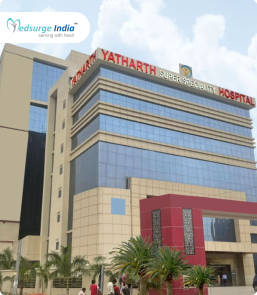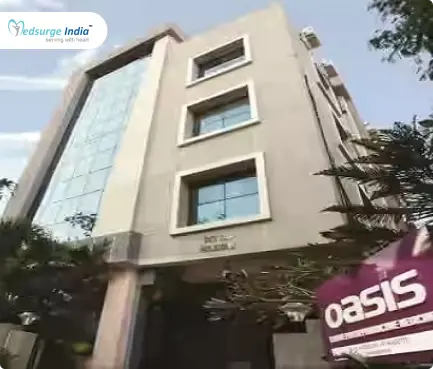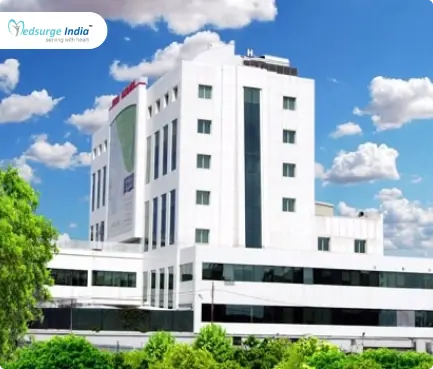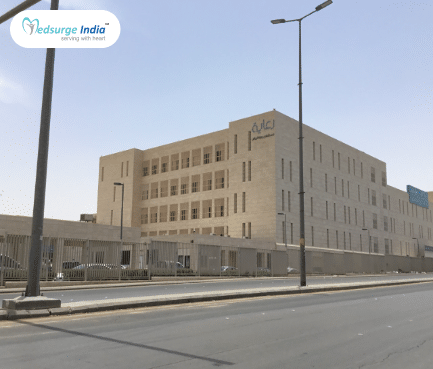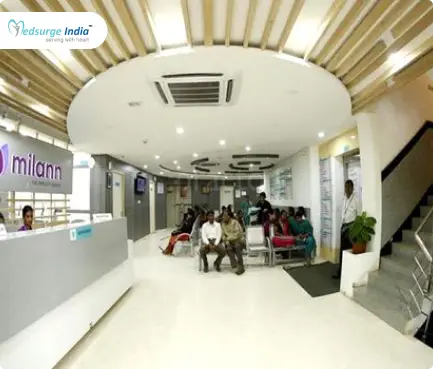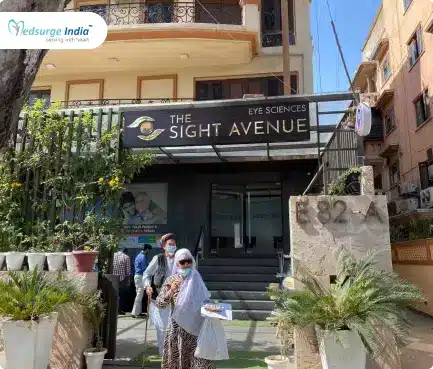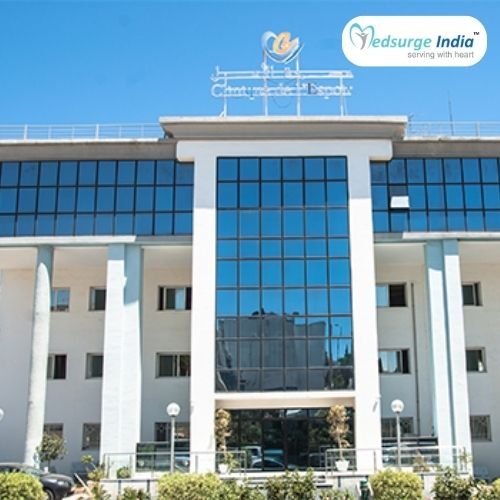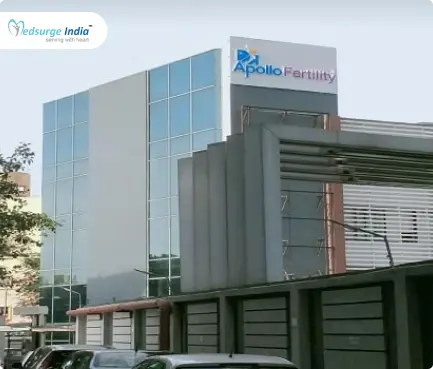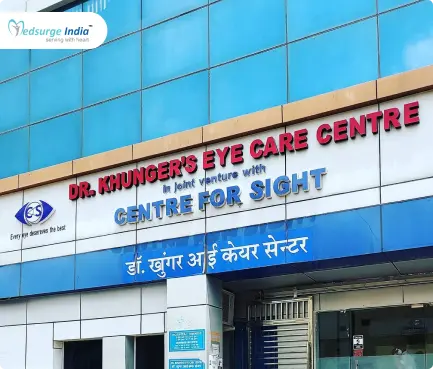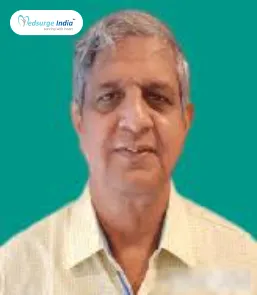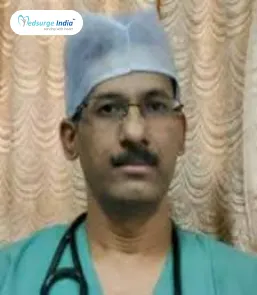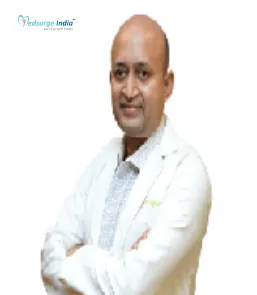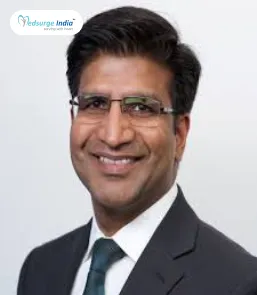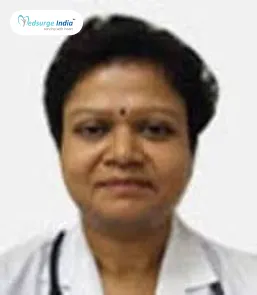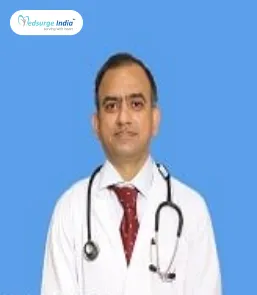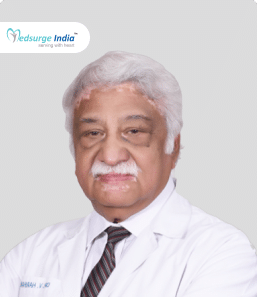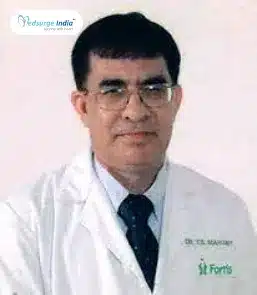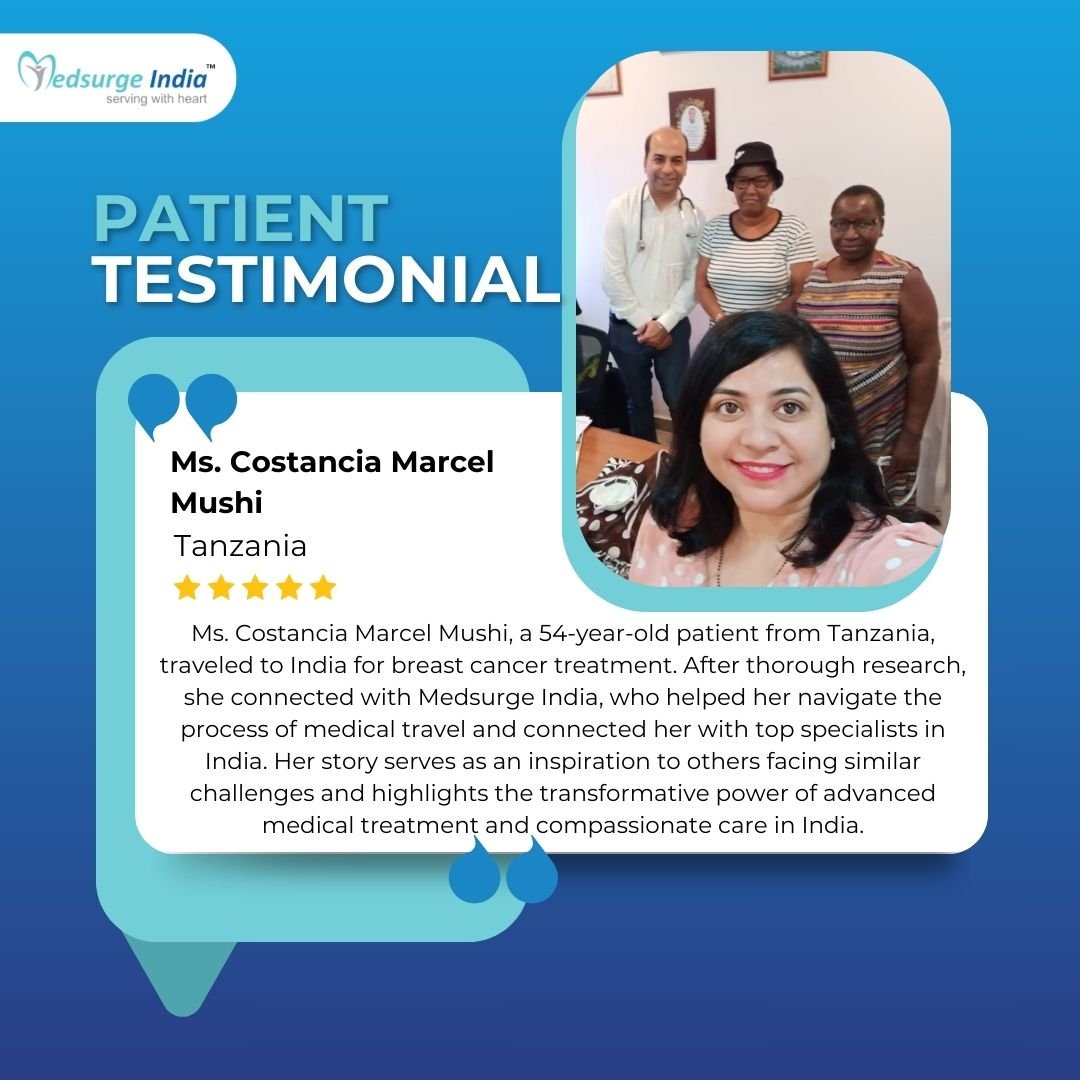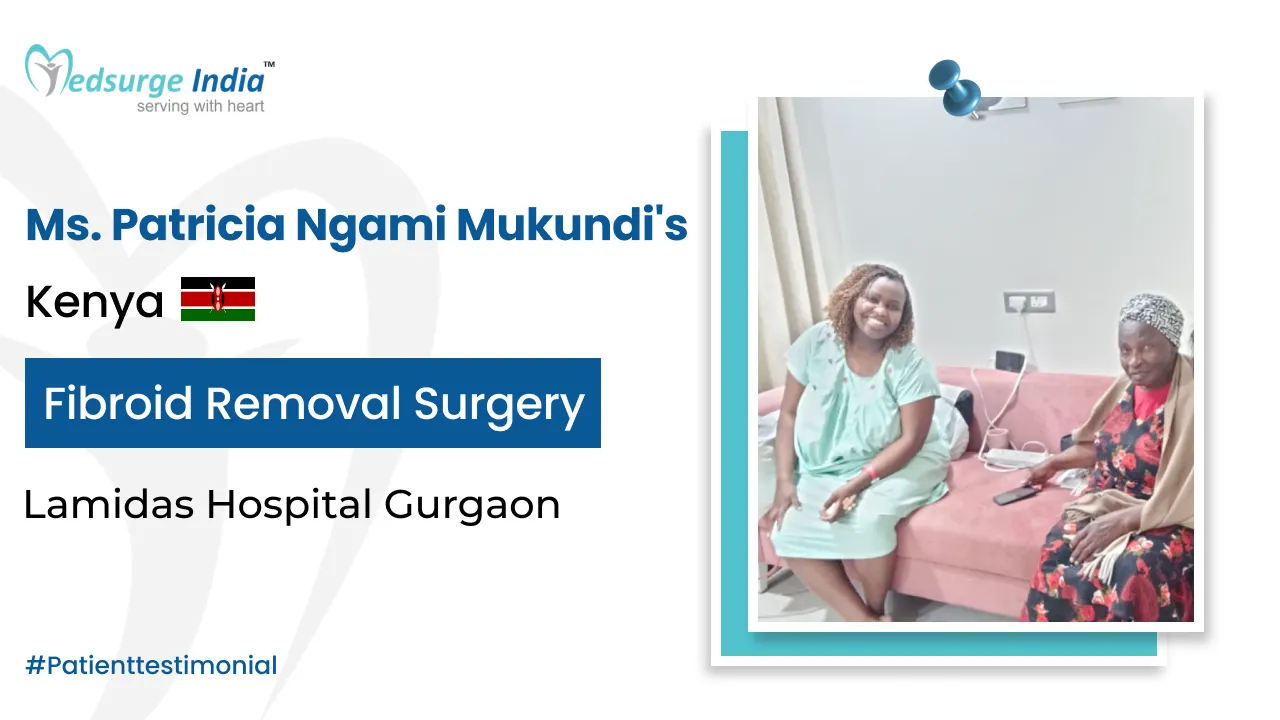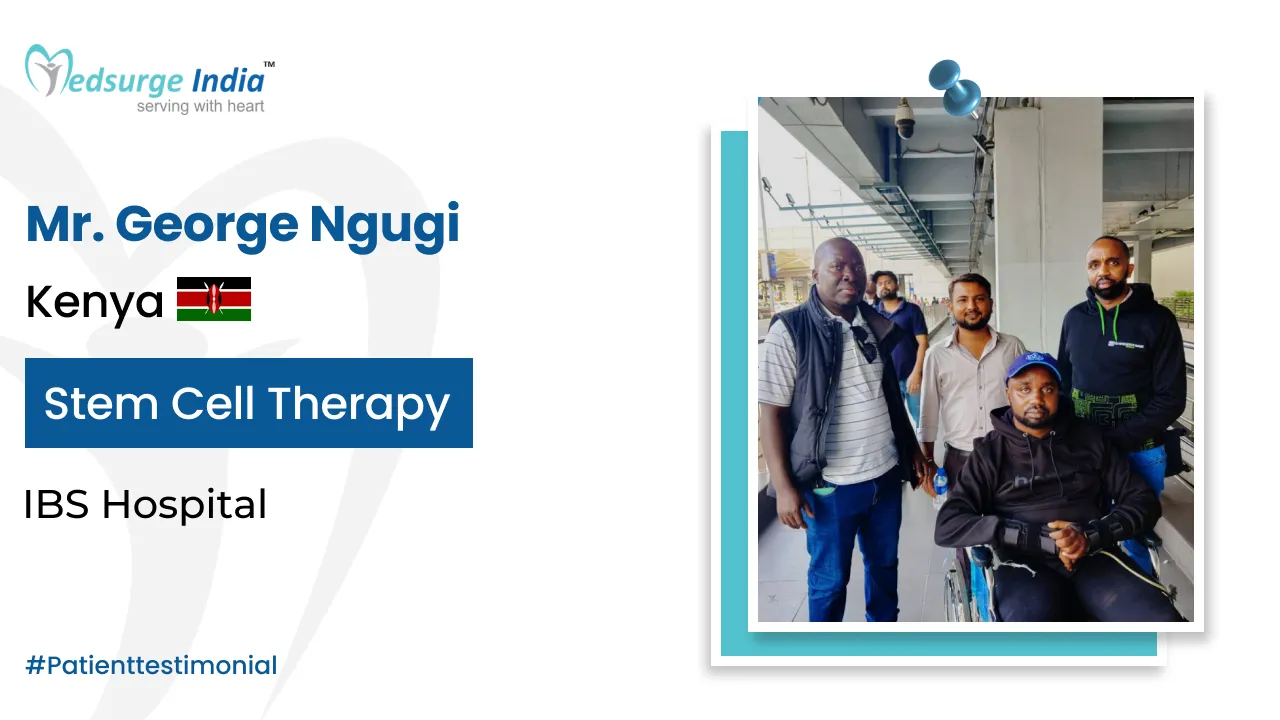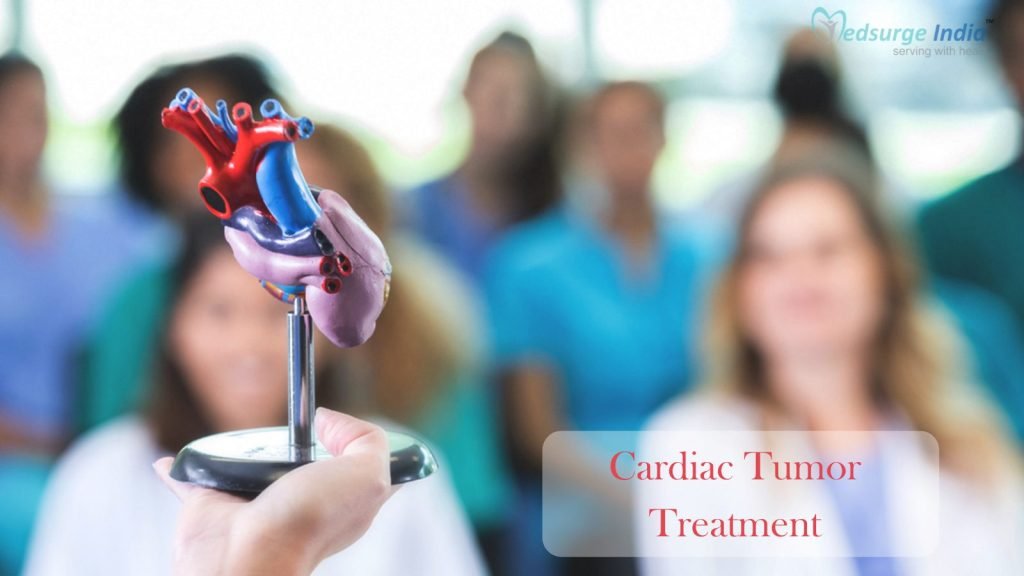
Cardiac tumors are very rare compared to other cardiovascular disorders and tumors from other organs, with only about 0.3% of patients undergoing cardiac surgery. The majority of cardiac tumors are benign, with cardiac myxomas being the most common in surgery, with a frequency of 70–80 % in cardiac tumors. Symptoms of cardiac tumors range from absent to nonspecific, and they frequently appear insidiously due to their diverse appearances. Arrhythmias, blood flow blockage, embolization, and other specific findings are all symptoms caused by cardiac tumors. Patients may experience dyspnea, dizziness, syncope, palpitations, and heart failure if the blood flow tract is impeded by a cardiac tumor. For cardiac tumor treatment in India, surgical procedures are advisable for patients to prevent life-threatening events from occurring.
What Is a Cardiac Tumor?
A tumor is essentially an overgrowth on the surface of any tissue or organ. A cardiac tumor is defined as tissue expansion that arises on the surface of heart tissues. These protrusions are most commonly encountered in the heart chambers or heart valves. Cardiovascular tumors are the rarest and least well-known of the several types of tumors.
Cardiac tumors, like all other tumors, are divided into two categories. These tumors have the following names:
- Benign Tumors: The origin of these tumors is non-cancerous. They can come in any size, depending on when they first appear. They do not spread to distant or isolated organs.
- Malignant Tumors: These tumors are malignant and hence have the ability to metastasize, or spread to other locations. They are the most difficult to cure, and the success rate of complete remission and no recurrence cannot be considered adequate.
Tumors are classified into two categories based on where they originate. They are referred to as:
- Primary Tumor: A tumor that starts in the heart and stays there. Myxoma is the most frequent benign heart tumor. Women are more likely to have them than men. Papillary fibroelastosis, fibromas, rhabdomyomas, hemangiomas, teratomas, lipomas, paragangliomas, and pericardial cysts are examples of non-cancerous primary tumors.
- Secondary Tumor: Secondary tumors are cancers that start somewhere else and spread to the heart tissues. The lungs, stomach, breast, kidney, colon, and liver are the most common sites of origin. Lymphoma, leukemia, and melanoma are the most common causes.
The majority of cardiac tumors are benign. However, small fragments of these can occasionally fall into the bloodstream, get carried away, and impede blood flow to the major organs. The medical term for this is embolism.
What Are the Symptoms of a Cardiac Tumor?
Many people with cardiac tumors show no symptoms. Symptoms are often non-specific and comparable to many other more prevalent cardiovascular disorders in those patients who do have them. The location, size, growth rate, and friability of the tumor all have a role in symptom manifestation (tendency to break off and travel in the bloodstream).
Here are some examples of clinical presentations:
- Heart attack (shortness of breath, leg swelling, inability to lie flat)
- Arrhythmia is a type of irregular heartbeat (irregular heartbeat)
- Chest discomfort
- Stroke (slurred speech, weakness, vision loss)
- Fluid/blood/tumor within the sac that surrounds the heart is known as pericardial effusion.
- Symptoms of the constitution (fever, weight loss, elevated inflammatory markers, anemia)
How Is the Diagnosis of Cardiac Tumor Done?
The rarity of cardiac tumors, as well as their similarities to other cardiac diseases and disorders, make diagnosis difficult. People with heart murmurs, irregular heart rhythms, or perplexing heart failure symptoms are usually diagnosed with cardiac tumors only after a thorough examination of their family history, symptoms, and a battery of diagnostic testing. If unexpected heart malfunctions are observed in cancer patients, the cause may be traced to cardiac tumors.
If your doctor detects a heart tumor, he or she may order the following tests for you:
- Blood tests
- Chest X-rays
- Echocardiogram
- Electrocardiogram
- Cardiac Catheterization
- Heart MRI
- CAT Scan
- Coronary Angiography
Cardiac Tumor Treatment Cost in India
On average, Cardiac Tumor Treatment Cost in India on an average starts from USD 9000. The cost of Cardiac Tumor Treatment in India will depend on the type of hospital or the location you choose.
Estimated prices depending on different cities in India
| Cities | Starting Price |
| Delhi | USD 9100 |
| Gurgaon | USD 9100 |
| Noida | USD 9000 |
| Mumbai | USD 9200 |
| Hyderabad | USD 9000 |
| Chennai | USD 9000 |
| Kolkata | USD 9000 |
| Bangalore | USD 9500 |
Note: Do remember that the pricing and the treatment for Cardiac Tumor Treatment cost in India will vary depending on the patient’s choice and other various factors.
Factors That Can Affect Cardiac Tumor Treatment Cost in India
The following here are some variables that can affect Cardiac Tumor Treatment Cost in India:
- Medication costs.
- Duration of treatment.
- Geographical location.
- Hospitalization expenses.
- Government policies and subsidies.
- Medical tourism packages.
- Hospital reputation and infrastructure.
- The expertise and experience of medical professionals.
- The type and frequency of diagnostic procedures.
- The choice of treatment modality.
Furthermore, even the standard and grade of medical care and amenities are comparable to those of the most prestigious healthcare facilities in the world, even when the expense of lodging, meals, and transportation is taken out. Also, under the direction of the most skilled physicians, Medsurge India provides patients with the lowest Cardiac Tumor Treatment Cost in India.
What Are the Causes of Cardiac Tumors?
The causes of a cardiac tumor might be various, however, it is usually discovered to be an external component or explanation that causes this type of overgrowth. The following are some of the known reasons:
- Genetic Predisposition: A individual with a heart tumor is likely to have had some family members with the condition in the preceding generation. Nearly 10% of heart tumors are passed down through the generations.
- Secondary Effects: The tumors could be caused by another condition, such as NAME Syndrome, Carney Syndrome, or LAMB Syndrome, which induce inflammation in the heart tissues.
- Cell Overgrowth: Most cardiac tumors are discovered to arise from uncontrolled cell division or metastasizing from another part of the heart valves and muscles.
- Tobacco: Nicotine, which is found in tobacco, is a proven cancer-causing toxin. Tobacco products can create tumors in the respective organs, which can spread to the cardiac tissues if smoked, inhaled, or chewed.
Get Free Cost Estimation
Procedure
How Is Cardiac Tumor Treated?
Because cardiac tumors impair heart blood flow, surgical excision of the mass is the preferred treatment. Medicines, on the other hand, may be used to slow the tumor’s progression. Chemotherapeutic treatment is rare, but not unusual.
Following your decision to proceed with the surgery, you should do the following steps, which may or may not correspond with the physician’s instructions.
Before Surgery
You should consult your doctor about any medications you are already taking and if you should continue taking them. If you have health coverage or insurance coverage, notify the hospital’s executives and business department two weeks before the final day for proper action. Pre-operative tests and other medications may be recommended by your doctor.
A regular bowel movement will be monitored the day before surgery. You will not be given any food prior to operation. Before the operation, the hospital staff may shave the area where the incision will be made, as well as remove any jewelry, makeup, or other accessories. It is preferable to have someone with you at this time.
During the Procedure
- You will be escorted to the operating room and placed on a table with your chest raised.
- You will be put under general anesthesia and become asleep.
- Your heart will be connected to a heart-lung machine that will keep it functioning.
- The surgeon will open up your chest cavity and locate the tumor-affected area.
- A tumor will be removed along with the surrounding tissue.
- The operating section will be stitched back together.
- In the event of an emergency, a defibrillator may be used.
A patient’s operation procedure can take three to five hours in total. The treatment can even be conducted by robotic arms in some facilities, which are less intrusive and need less time in the hospital.
After the Procedure
Depending on the severity of the operation, the patient may be detained in an ICU for a day or two after the procedure for observation. He or she will be hooked up to a heart, blood pressure, body temperature, and inhalation monitor throughout this time. Patients will be transported to the general ward for continued healing once they can execute motor skills independently.
- Taking extraordinary precautions to avoid infections in the surgical wound. The hospital may arrange for the wound to be dressed on a regular basis.
- Suspended bowel movement is a common side effect of protracted surgeries. Purgatives or a modification in your diet may be prescribed by your physician.
- You won’t be able to carry anything heavy unless the doctor says so. Sudden chest hits are also frowned upon.
- Blood pressure, respiration, and heart rate will be monitored on a regular basis.
- If you are in discomfort, the doctor may prescribe medicines.
- Every year, an ECG will be performed to check that the tumor has not resurfaced or that no new growth is occurring.
The recovery time for open-heart surgery is usually between 5 and 6 weeks. This period may be decreased to 2 to 3 weeks with robotically assisted surgery.
Conclusion
Benign cardiac tumors that go untreated can be fatal. Benign cardiac tumors that go untreated can also be life-threatening. Radiation, chemotherapy, and complication management are commonly used to treat malignant heart tumors. These tumors are predicted to have bad outcomes.
Know More – Top Cardiologists in India
The Most Important Frequently Asked Questions
Q: How Long Can You Survive with a Heart Tumor?
A: After a heart cancer diagnosis, the typical life expectancy is roughly six months without surgery and more than a year when surgery is available, with some accounts of patients living for many years after complete excision of the tumor.
Q: How Likely Are You to Survive a Heart Tumor?
A: Malignant primary cardiac tumors have a poor prognosis, especially in young patients: without surgical resection, the survival rate at 9 to 12 months is only 10%.
Q: What Type of Heart Tumor Is the Most Common?
A: Adults are more likely to develop atrial myxoma, while children are more likely to develop rhabdomyosarcoma (3, 4).
Q: Do Tumors Show Up on an Echocardiogram?
A: The initial imaging modality is usually echocardiography, particularly the transesophageal approach. It can reveal the tumor’s location, size, and hemodynamic repercussions. Cardiac MRI can reveal more about the morphology, location, and size of the mass.
Q: How Does a Mass in the Heart Get Removed?
A: Blood flow restriction, rhythm problems, and valve damage can all be caused by masses or tumors in the heart. The treatment of choice is surgical removal, which can be performed using either an open heart surgery approach or a minimally invasive procedure.
Top Hospitals for Cardiac Tumor Treatment in India
Top Doctors for Cardiology And Cardiac Surgery
Dr. Perwaiz Alam
Experience: 20+ years of experience
Brahmananda Narayana Multispeciality Hospital, Jamshedpur
Jamshedpur, India
Dr. J. S. Satyanarayana Murthy
Senior Consultant
Experience: 30 years of experience
Sri Ramachandra Medical Centre, Chennai
Chennai, India
Dr. Barendra Kumar Raut
Consultant
Experience: 16 years of experience
The Bangkok Christian Hospital, Bangkok
Bangalore, India
Hitesh Gurjar
Consultant
Experience: 34 years of experience
Ivy hospital, Nawanshahr
Chandigarh, India
Dr. Hansa Gupta
Consultant
Experience: 11 years of experience
Miracle Mediclinic Hospital, Gurgaon
Gurgaon, India
Dr. Vishal Agarwal
Head of Department , MBBS, MS, MCh
Experience: 17 years of experience
Gurgaon, India
Dr. Rajnikant N Shastry
Senior Consultant
Experience: 21 years of experience
Minimal Access Smart Surgery Hospital (MASSH)
New Delhi, India
Dr. Anand H Subrahmanyam
Cardiac Surgeon Consultant
Experience: 20 years of experience
Manipal Hospital Varthur Road formerly Columbia Asia Bangalore
Bangalore, India
Dr. P Sridhar
Consultant
Experience: 10 years of experience
Medicover Hospital, Hitec City
Hyderabad, India
Dr. Akhil Kumar Rustagi
Senior Consultant
Experience: 17 years of experience
Yatharth Super Specialty Hospital, Greater Noida
Noida, India
Dr. Satya Nand Pathak
Consultant
Experience: 8 years of experience
Indraprastha Apollo Hospital New Delhi
New Delhi, India
Dr Smruti Rajan Mohanty
Consultant , MBBS, MS, DNB, MCh, Fellowship
Experience: 13 years of experience
Kokilaben Dhirubhai Ambani Hospital, Mumbai
Mumbai, India
Dr. S.Muthukkumaran
Consultant
Experience: 13 years of experience
Prashanth Multi Speciality Hospital Chennai
Chennai, India





